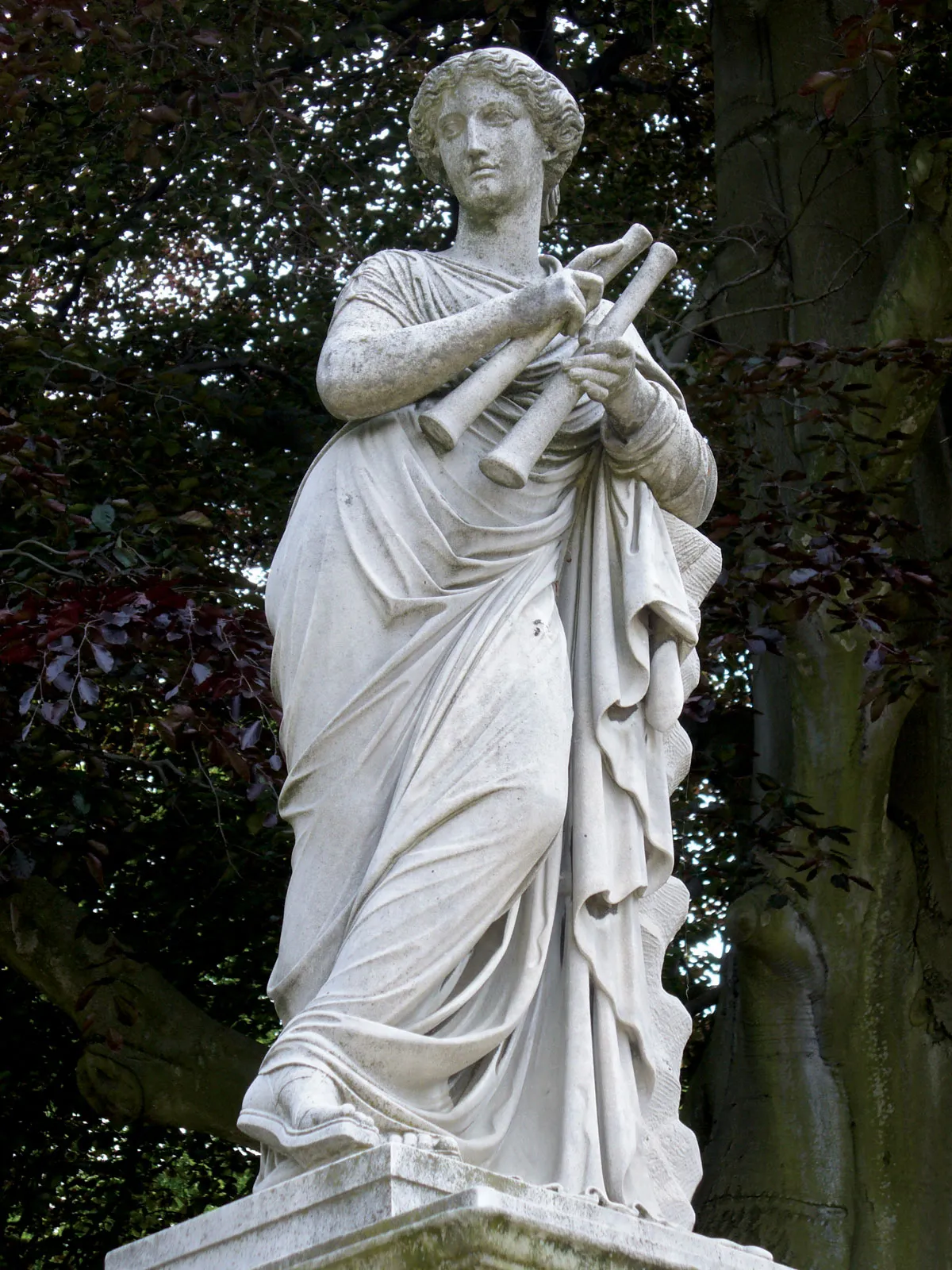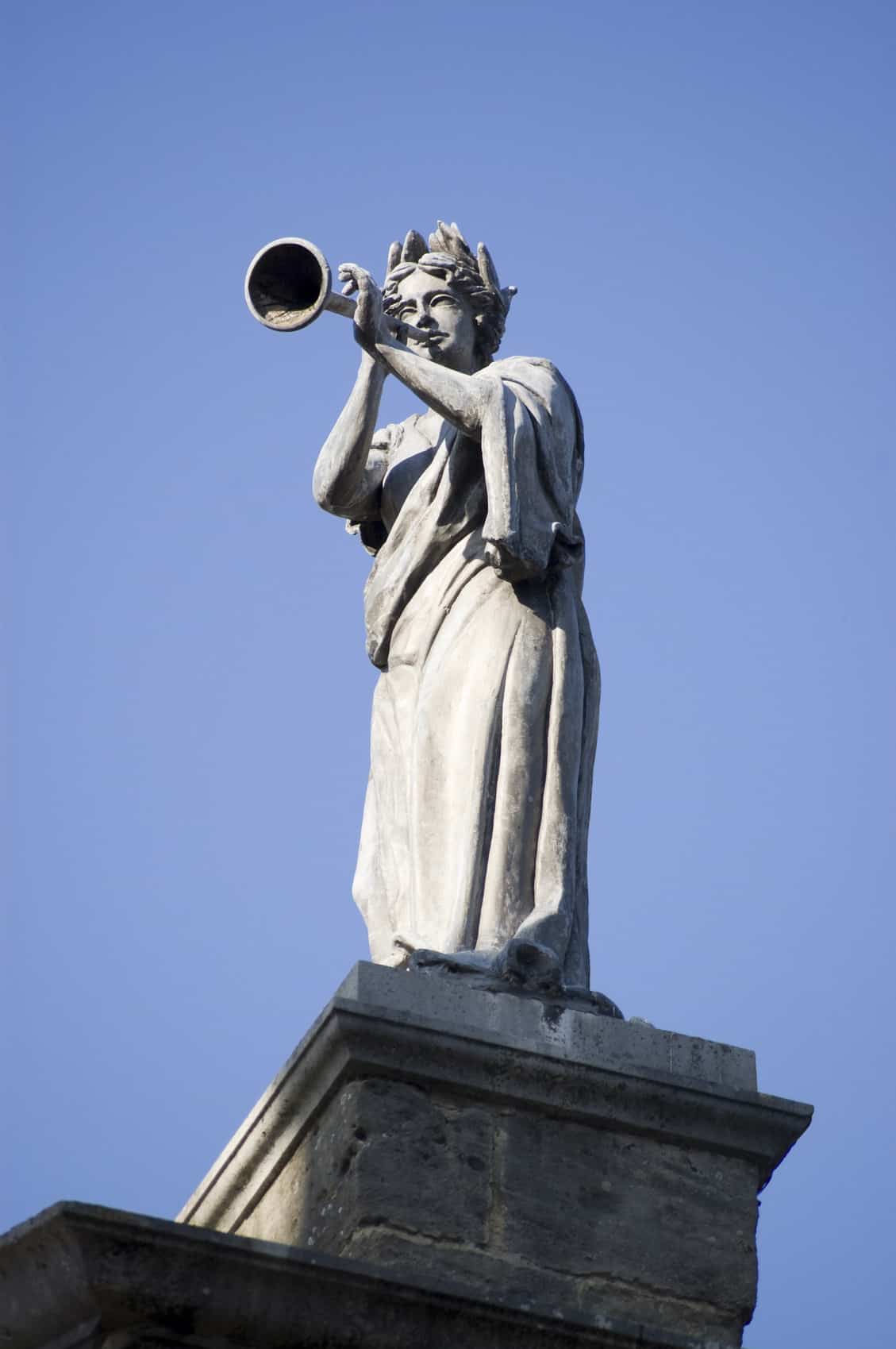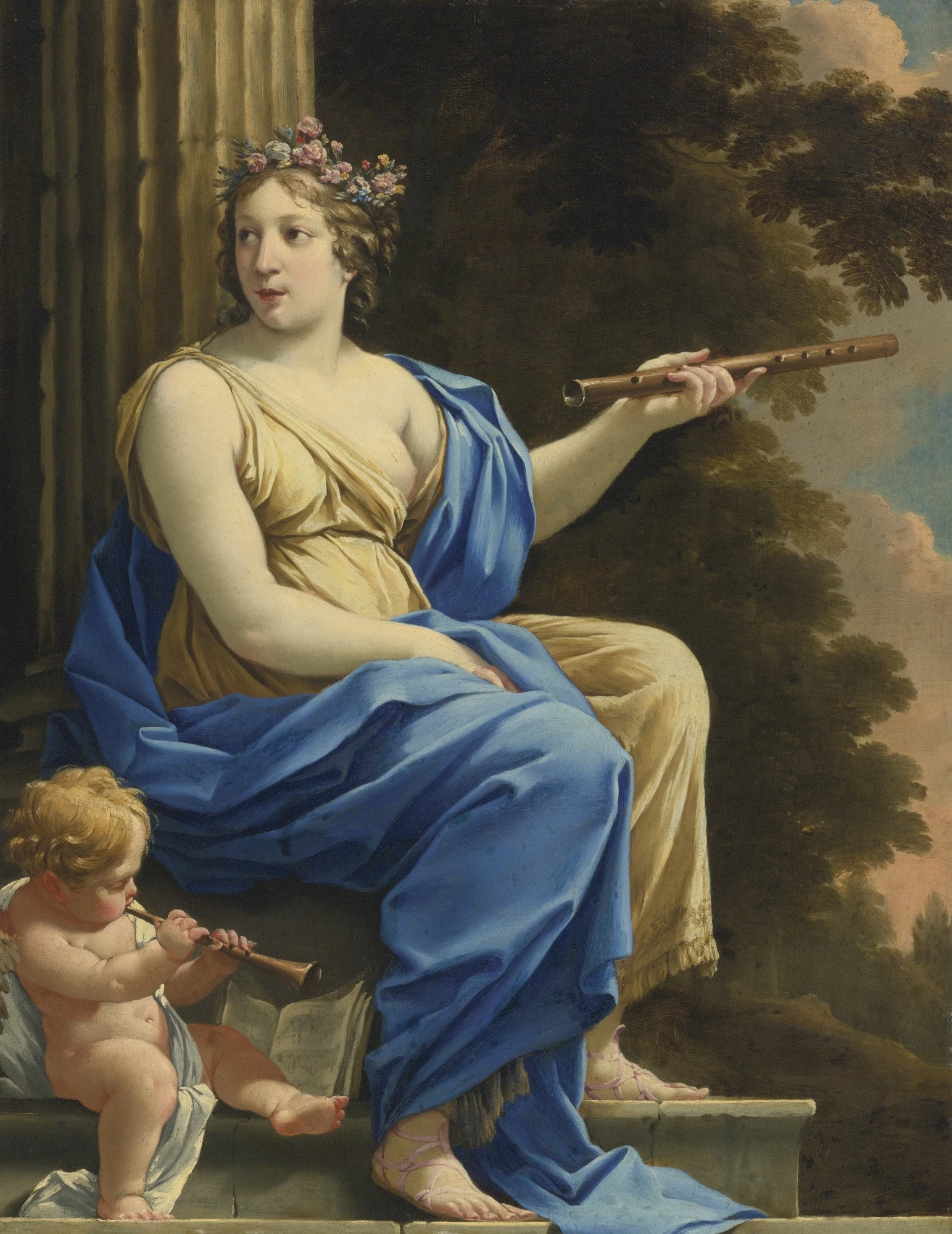Euterpe is the Greek goddess of music, one of the nine muses in Greek mythology. She was responsible for inspiring musicians and poets; her name means “delight” or “rejoicing.” Euterpe was often depicted holding a flute or a lyre, and she was associated with the enjoyment and pleasure that music brings.
The worship of Euterpe dates back to ancient Greece, where she was revered for her ability to inspire creativity and artistic expression. She played an essential role in developing music and poetry, and many ancient Greeks believed that she could bring joy and happiness into their lives through her divine influence.
Today, Euterpe continues to be celebrated as a symbol of creativity and inspiration, and her legacy can be seen in the many musical and artistic traditions passed down through the ages.
Whether you are a musician, a poet, or simply someone who appreciates the beauty and power of art, Euterpe is a fascinating figure who has played an essential role in shaping our cultural heritage. By learning more about this goddess and her influence on the world of music and poetry, we can gain a deeper appreciation for the transformative power of art and the enduring legacy of creativity that inspires us today.
Birth Story and Parents
Euterpe was one of the nine Muses, daughters of Zeus and Mnemosyne. According to Greek mythology, Zeus, the king of gods, fell in love with Mnemosyne, the goddess of memory, and they had nine daughters together. Euterpe was the Muse of music, poetry, and lyric songs, and she was born after her eight sisters.
The birth of the Muses is often depicted in Greek art, with Mnemosyne holding a palm tree and her daughters surrounding her. Euterpe’s birth story is also associated with the island of Delos, where she was born. According to one myth, Leto, the mother of Apollo and Artemis, gave birth to her children on Delos, and the Muses were present at the birth.
Euterpe’s father, Zeus, was the king of gods and the god of the sky, thunder, and lightning. He was known for his many love affairs and was often depicted with a lightning bolt in his hand. Euterpe’s mother, Mnemosyne, was the goddess of memory and the mother of the Muses. She was often associated with storytelling and was said to have a great memory.
Affairs and Relations and Children
Euterpe was known for her beautiful music, which she played on a double flute. She was also associated with love; many stories depict her as having romantic relationships with gods and mortals.
Euterpe was said to have had several children, although the identity of their fathers is not always clear. One story tells of Euterpe’s affair with the river god Strymon, which resulted in the birth of Rhesus, a warrior who fought in the Trojan War. Another story claims that Euterpe had a son named Hymenaeus, the god of weddings and marriage ceremonies.
While Euterpe’s romantic relationships were often the subject of myth and legend, she was also known for her close relationships with other gods and goddesses. She was particularly close to Apollo, the god of music and poetry, with whom she shared many interests. Euterpe was also associated with the goddess Aphrodite, who was said to have been her teacher in love and romance.
Despite her many relationships, Euterpe remained a devoted mother to her children. She was known for her kindness and compassion, and she often used her musical talents to soothe and comfort those in need. Her children, in turn, were said to have inherited her musical abilities and her love of poetry and dance.
Symbols and Powers
Euterpe, the Greek goddess of music, was among the nine Muses. She is often depicted holding a flute or a double flute, her primary symbol. The flute represents her love for music and ability to inspire creativity and expression. Euterpe is also associated with tragedy and the power of music to evoke strong emotions.
In addition to the flute, Euterpe is often depicted with other symbols representing her powers and influence. These symbols include:
- Laurel wreath: A symbol of victory and achievement, often worn by ancient Greek poets and musicians as a sign of their accomplishments. Euterpe is sometimes depicted wearing a laurel wreath to symbolize her mastery of music and poetry.
- Lyre: A stringed musical instrument that was popular in ancient Greece. Euterpe is sometimes depicted playing the lyre, representing her musical skill and expertise.
- Swan: A bird sacred to Euterpe and often associated with music and poetry. The swan was believed to sing a beautiful song just before it died, and Euterpe was said to have the power to transform herself into a swan.
Euterpe’s powers were not limited to music and poetry. She was also believed to be able to heal and bring joy and happiness to people’s lives. As a goddess of tragedy, she could also evoke strong emotions in people and inspire them to reflect on the deeper meaning of life.

Overall, Euterpe’s symbols and powers represent her influence over music, poetry, and the arts and her ability to inspire and heal. She remains an important figure in Greek mythology and a source of inspiration for artists and musicians worldwide.
Worship
Euterpe was one of the nine Muses, the daughters of Zeus and Mnemosyne, who protected the arts and sciences. She was the Muse of music and lyric poetry and was often portrayed holding a flute or a double flute. Euterpe was a beloved goddess, and many ancient Greeks worshipped her as the patron of music and poetry.
The worship of Euterpe was an essential part of ancient Greek culture, and many people believed she could inspire them to create beautiful music and poetry. Her followers were passionate about their devotion to her and often held festivals and ceremonies in her honor.
Euterpe was also associated with education and intellectual pursuits, and many scholars and philosophers looked to her for inspiration. Her influence can be seen in many aspects of ancient Greek culture, from the music and poetry of the time to the development of philosophy and science.
For those who sought to create beautiful music or poetry or to further their education and intellectual pursuits, worshipping Euterpe was a way to connect with the divine and gain inspiration. Her followers believed that by honoring her and seeking her guidance, they could achieve greatness in their chosen fields.
Today, Euterpe may not be as widely worshipped as she once was, but her influence can still be felt in music and poetry. Those who seek to create beautiful works of art can still look to her for inspiration and guidance, and her legacy lives on through the many artists and musicians who continue to be inspired by her.
Euterpe is a Greek goddess known as the muse of music, song, and dance. She is often depicted holding a flute or a lyre, and she is said to inspire musicians and poets to create beautiful works of art. This section will explore some interesting facts about Euterpe that you may not have known before.
Euterpe is a fascinating goddess with a rich history and mythology. If you want to learn more about her, read on to discover some interesting facts.

Interesting Facts
Many interesting facts about Euterpe make her a unique and fascinating goddess. For example:
- Euterpe was one of the nine Greek mythology muses, each responsible for inspiring a different art form.
- Euterpe was the muse of music, song, and dance and was said to inspire musicians and poets to create beautiful works of art.
- Euterpe was often depicted holding a flute or a lyre, the instruments she was said to have invented.
- Euterpe was the daughter of Zeus and Mnemosyne, the goddess of memory.
- Euterpe’s name comes from the Greek word “euterpos,” which means “delightful” or “well-pleasing.”
- Euterpe was said to have been born in Pieria, a region of ancient Greece that was known for its musical traditions.
- Euterpe was sometimes depicted with wings, which symbolized the freedom and creativity that music and art can bring.
Frequently Asked Questions
What is the role of Euterpe?
Euterpe is the ancient Greek goddess of music, specifically of lyric poetry and the flute. As one of the nine Muses, Euterpe inspired and guided artists, musicians, and poets in their creative endeavors. She was also believed to have the power to soothe and heal through music.
What is the meaning of the name Euterpe?
The name Euterpe is derived from the Greek words “eu,” meaning “good,” and “terp” meaning “delight.” Therefore, Euterpe is often translated as “she who gives pleasure” or “well-pleasing.”
What is another name for Euterpe?
Euterpe is sometimes called “the giver of delight” or simply “the Muse of music.”
Who is the goddess of the flute?
Euterpe is the goddess of the flute. She was often depicted holding a double flute, a popular instrument in ancient Greece.
What is the instrument associated with Euterpe?
As mentioned, the double flute is the instrument most commonly associated with Euterpe. This instrument was often used in religious ceremonies and was believed to have a calming effect on the mind and body.
What is the significance of Euterpe as a muse?
As a Muse, Euterpe was believed to inspire and guide artists, musicians, and poets in their creative endeavors. Her presence was seen as essential for creating beautiful and meaningful works of art. Euterpe was also associated with joy, pleasure, and the celebration of life.

